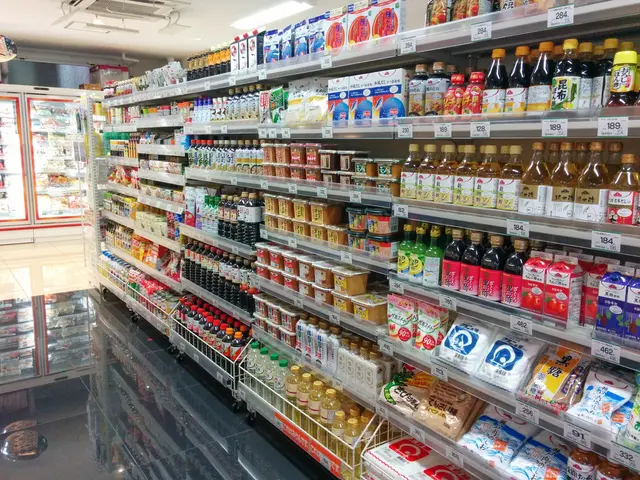Pump Prices Slightly Up: Fueling Up Just Got a Tad More Expensive
Fuel costs are soaring rapidly
Get ready for your wallet to take a hit at the gas station. Fuel prices in Germany have experienced a minor surge, with a liter of E10 gasoline now costing an average of €1.668, according to ADAC's report on April 2025. This price increment came about as the price of E10 rose by 0.1 cents, while diesel saw a more substantial elevation of 0.8 cents, putting its current price at €1.550 per liter.
This price hike at the pumps seems to echo a similarly modest increase in oil prices. The rise in oil prices saw a barrel of Brent crude oil costing around €67, about €2 more expensive than the previous week. But there's a silver lining: the euro has strengthened against the dollar, making oil purchases relatively cheaper. ADAC describes the current fuel prices as being "at an overall acceptable level."
The ADAC offers some advice for motorists looking to save during these pricey times. Fill up your tank in the evening hours, specifically between 7 PM and 8 PM. This simple trick will help you shell out an average of €0.13 less per liter.
As for the cause behind these price fluctuations, it's a complex concoction of several elements. Global oil prices and geopolitical tensions, for one, exert significant influence on Germany's fuel prices. Taxation and regulatory policies play their part as well, with Germany imposing high energy taxes, CO₂ pricing, and value-added tax. The euro's exchange rate with the dollar and the ongoing debate around fuel mix regulation also contribute to the pricing chameleon. Lastly, broader inflation within the German economy, coupled with rising costs for utilities, groceries, and services, continues to pressurize fuel prices.
Selected Key Factors Behind Germany's Fuel Price Increases
International Oil Prices and Political Factors: Although your tank can't read the news, it's influenced by them. International crude oil prices are subject to the whims of global market dynamics, geopolitical tensions, and supply chain disruptions. Brace yourself for price volatility when there's geopolitical drama or adjustments in oil production by major exporters.
Taxation and Regulation: Germany's fuel prices are cushioned by a hefty blanket of taxes and levies, including energy taxes, CO₂ pricing, and value-added tax. Changes in environmental policies or any adjustments to the CO₂ price can directly impact fuel costs.
Currency Exchange Rates: Oil is as globally traded as an Avatar movie, and a weaker euro makes imports more expensive, hence pricey pump prices.
Domestic Demand and Supply: Seasonal variations, changes in consumer behavior, and fluctuations in domestic supply can send gasoline prices soaring like a rocket. The ongoing debate around fuel mix regulation also dwells in this sphere. The ADAC, for instance, advocates for the promotion of Super E10 (which is cheaper and eco-friendlier) but argues that current regulations hinder its widespread adoption[1].
Inflation and Living Costs: We're not just talking about rising fuel prices here. The broader inflation within the German economy, encompassing price hikes for utilities, food, drink, and services, creates an upward pressure on fuel costs. Utility prices have seen a 13% increase between January 2022 and February 2025, while food and drink prices surged by 30% over the last four years[2].
ADAC's Point of View and Proposals
The ADAC delineates that regulatory requirements, such as the obligatory offering of Super E5 at fuel stations, hamper the broader adoption of Super E10[1]. To alleviate this problem, the ADAC proposes regulatory adjustments to encourage E10 as the standard fuel[1]. In extreme cases where consumer behavior remains unchanged, they advise more stringent measures to effect change.
In summary, fuel price increases in Germany are the result of a multifaceted web of factors, including international oil prices, political instability, taxes, currency exchange rates, and inflation[1][2]. With a dose of savvy fueling strategies and keen legislative tweaks, the dream of affordable, eco-friendly fuel might just become a reality.
- The rise in fuel prices in Germany, as indicated by the ADAC's report, can be attributed to several factors, including international oil prices, taxation and regulation policies, currency exchange rates, domestic demand and supply, and inflation and living costs.
- To combat the increasing fuel prices and encourage the use of an eco-friendlier and cheaper option, the ADAC proposes regulatory adjustments to make Super E10 the standard fuel, addressing the issue caused by the obligatory offering of Super E5 at fuel stations that currently hinders its widespread adoption.








